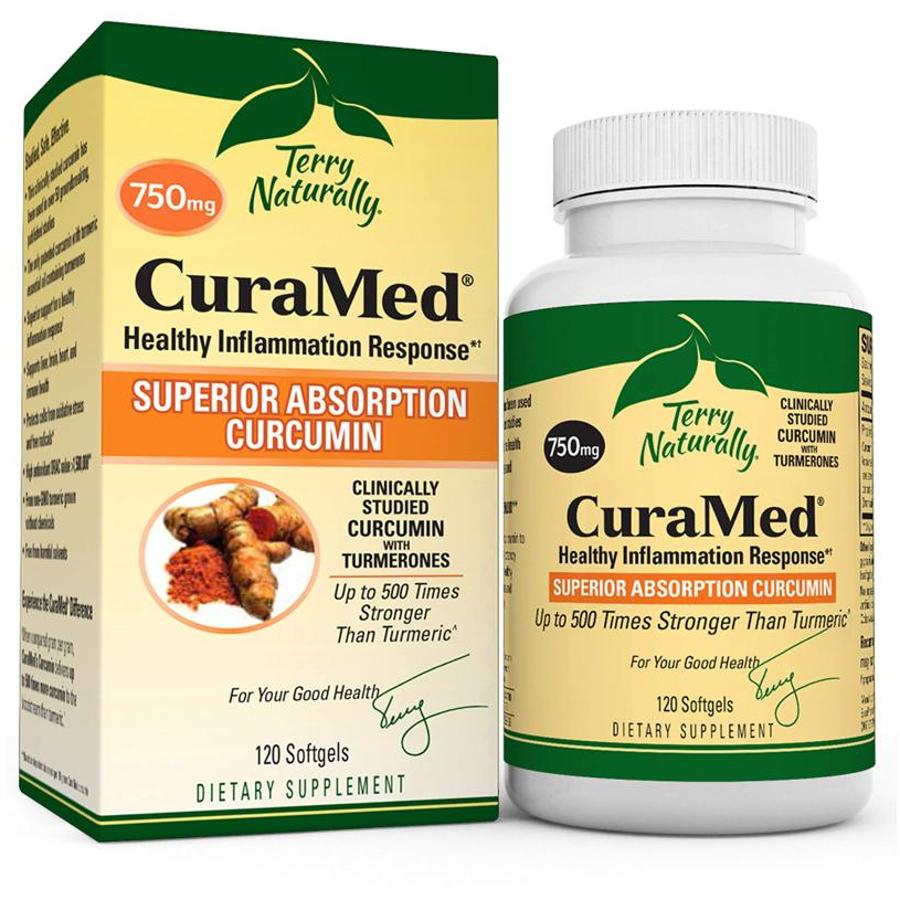Understanding the Anti-Inflammatory Properties of Curcumin
Curcumin, a natural compound found in turmeric, has gained significant attention for its potential anti-inflammatory effects. In this article, we will explore the various aspects of curcumin’s anti-inflammatory properties and how it can be incorporated into daily life for potential health benefits.
What is Curcumin?
Curcumin is a bioactive compound that is naturally present in turmeric, a spice commonly used in Indian cuisine. It is responsible for the vibrant yellow color of turmeric and has been used for centuries in traditional medicine due to its potential health benefits.
Chemical Structure and Composition
Curcumin belongs to a class of compounds called curcuminoids. It is a polyphenol with a chemical formula of C21H20O6. The compound consists of two methoxyphenyl rings connected by a seven-carbon linker and contains several functional groups, including two phenolic hydroxyl groups.
Product Spotlight
Aggregate Rating
Our Rating
Terry Naturally CuraMed is a natural supplement that offers powerful support for a healthy inflammatory response in the body. With a unique blend of ingredients, it provides enhanced bioavailability and is backed by scientific research.
Historical Use
The use of curcumin in traditional medicine dates back thousands of years. In Ayurvedic medicine, turmeric has been used for its anti-inflammatory properties and as a remedy for various ailments. The ancient healing system recognized turmeric as a potent herb with numerous health benefits.
Mechanisms of Action
Curcumin exerts its anti-inflammatory effects through multiple mechanisms, targeting various biological pathways involved in inflammation. Understanding these mechanisms can provide insights into how curcumin can help manage inflammation.
Interactions with Biological Pathways
Curcumin modulates several signaling pathways involved in inflammation, including the NF-κB pathway, which plays a crucial role in regulating immune responses and inflammation. Studies have shown that curcumin inhibits the activation of NF-κB, leading to a reduction in the production of pro-inflammatory cytokines.
Reduction of Inflammation Markers
Curcumin has been found to reduce the levels of various inflammation markers, such as C-reactive protein (CRP) and interleukin-6 (IL-6). These markers are often elevated in conditions associated with chronic inflammation, and their reduction signifies a decrease in inflammatory activity.
Modulation of Immune Responses
Curcumin also modulates immune responses by regulating the activity of immune cells. It has been shown to inhibit the activation of immune cells called macrophages, which play a key role in the inflammatory process. By modulating macrophage activity, curcumin can help regulate the immune response and reduce excessive inflammation.
Health Benefits
In addition to its anti-inflammatory effects, curcumin has shown potential health benefits in managing various chronic diseases.
Arthritis
Curcumin has been studied for its potential role in managing arthritis, a condition characterized by joint inflammation. Research suggests that curcumin’s anti-inflammatory properties may help alleviate symptoms of arthritis, including pain and stiffness.
Heart Disease
Studies have also investigated the effects of curcumin on heart health. Curcumin has been found to have antioxidant and anti-inflammatory effects, which may contribute to its potential cardioprotective properties. It may help reduce the risk of heart disease by improving markers of cardiovascular health, such as cholesterol levels and blood pressure.
Cancer
Curcumin’s potential anti-cancer properties have been a subject of research. It has shown promise in inhibiting the growth of cancer cells and suppressing the formation of tumors in various types of cancer, including breast, colon, and prostate cancer. However, more studies are needed to fully understand its mechanisms and efficacy in cancer prevention and treatment.
Side Effects and Precautions
While curcumin is generally considered safe, high doses may cause gastrointestinal discomfort, such as nausea and diarrhea. It may also interact with certain medications, such as blood thinners, so it is important to consult with a healthcare professional before starting any new supplement regimen.
How to Incorporate Curcumin in Daily Life
Curcumin can be incorporated into daily life in various ways to potentially reap its health benefits.
Turmeric Supplements
One convenient way to consume curcumin is through turmeric supplements. These supplements are available in capsule or tablet form and provide a standardized dose of curcumin. It is important to choose high-quality supplements from reputable brands to ensure purity and potency.
Culinary Uses
Turmeric powder, which contains curcumin, can be used as a spice in cooking. It adds flavor and color to dishes, making it a versatile ingredient in various cuisines. Incorporating turmeric into recipes such as curries, soups, and smoothies can be an enjoyable way to consume curcumin.
Topical Applications
Curcumin-based creams and ointments are available for topical use. These products may provide localized relief for conditions such as arthritis or skin inflammation. However, it is essential to follow the instructions and consult with a healthcare professional if using curcumin topically.
Dosage Recommendations
The optimal dosage of curcumin varies depending on the individual and the desired health benefits. It is generally recommended to start with a low dose and gradually increase if needed. Consulting with a healthcare professional can help determine the appropriate dosage based on individual circumstances.
Precautions
While curcumin is considered safe for most people, it is important to be aware of potential interactions with medications. Curcumin may interact with certain drugs, including blood thinners, antiplatelet medications, and drugs metabolized by the liver. It is advisable to consult with a healthcare professional before adding curcumin to your regimen.
Conclusion
Curcumin, the active compound in turmeric, offers promising anti-inflammatory properties and potential health benefits. Understanding the mechanisms of action and exploring its role in managing chronic diseases can provide valuable insights for individuals seeking natural approaches to support their well-being. Incorporating curcumin into daily life through supplements, culinary uses, or topical applications may offer a convenient way to potentially harness its benefits. However, it is important to consult with a healthcare professional before making any significant changes to your health regimen.
References:

